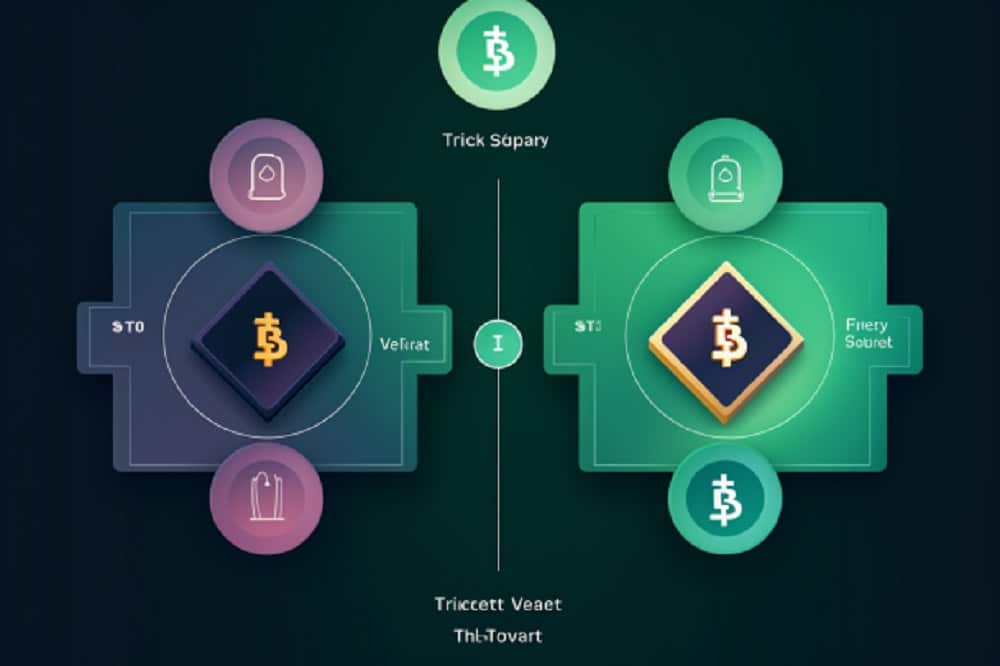Crypto tokens are digital assets that don’t have their own blockchains, but rather run on other blockchains like Ethereum. There are different types of tokens, depending on the intention for creating them.
Two of the major types of tokens are utility and security tokens. You may have heard these two terms before while navigating the crypto space, but what exactly is the difference between the two? In this guide, we explore what they are, and the characteristics that distinguish them.
What Are Utility Tokens?
Utility tokens are tokens designed to perform specific functions within a project’s blockchain. For example, ether is a token used to power the Ethereum blockchain. You can use it to pay for transaction fees and other costs within the Ethereum ecosystem.
Utility tokens are typically not mined, but rather all created at the same time. The creators then distribute them for use within the ecosystem as they want in line with the objectives of the project. While some are used to run the ecosystem, some of them are sold to fund the project.
You may need a utility token to carry out a specific action on a project. Some other uses of utility tokens are for paying out interest to stakers on proof-of-stake networks as well as rewarding the network’s users in other ways.
Non-fungible tokens (NFTs) are also utility tokens, but they are non-fungible. This means they cannot be split into smaller parts. You can buy a fraction of ether, but you can’t buy a fraction of an NFT. You must buy the whole NFT.
What Are Security Tokens?
Security tokens are simply investment tokens, similar to traditional security assets. They are digital assets that represent ownership or other rights and transfer value from an asset or bundle of assets to a token. They are the digital form of traditional investments like stocks, bonds, or other securitized assets.
Some cryptocurrencies are labeled as securities by the securities and exchange commission (SEC) in the US because they issued their digital tokens to the public in exchange for a share of the project through what is called an initial coin offering (ICO). This is similar to what a traditional company does when it wants to raise funds to expand.
ICOs serve as avenues for raising funds to support crypto projects and in turn, the investors gain when the token starts to increase in value. Crypto projects issue security tokens on crypto exchanges and investors can buy and own them.
What is the difference between Utility and Security Tokens?
Both utility and security tokens are digital assets and they both run on blockchains. However, they are fundamentally different, and one of the key differences is that security tokens give the holder rights of ownership to a company. They are like digital shares of a company.
Utility tokens don’t give rights of ownership to any company, which is what exempts them from being classified as security tokens. To qualify a token as a security, it must meet certain conditions, which can sometimes make a utility token look like a security token.
First, there must be an investment of money and the investors expect to make a profit based on the decisions that the investment issuers make. The profits from the investment must also come from the work of others. Any token that meets these conditions is considered a security by the SEC.
Many utility tokens are being used by investors as security tokens because they buy and trade them to make a profit. However if there’s no expectation of profit from the project, then it cannot be referred to as a security token.
Conclusion
Security tokens are mainly created as digital shares of a company, while utility tokens are created to be used for specific purposes in a blockchain ecosystem. It can be easy to confuse the two, based on how they are used, but the above are characteristics that distinguish them.
At Tokenhell, we help over 5,000 crypto companies amplify their content reach—and you can join them! For inquiries, reach out to us at info@tokenhell.com. Please remember, cryptocurrencies are highly volatile assets. Always conduct thorough research before making any investment decisions. Some content on this website, including posts under Crypto Cable, Sponsored Articles, and Press Releases, is provided by guest contributors or paid sponsors. The views expressed in these posts do not necessarily represent the opinions of Tokenhell. We are not responsible for the accuracy, quality, or reliability of any third-party content, advertisements, products, or banners featured on this site. For more details, please review our full terms and conditions / disclaimer.
